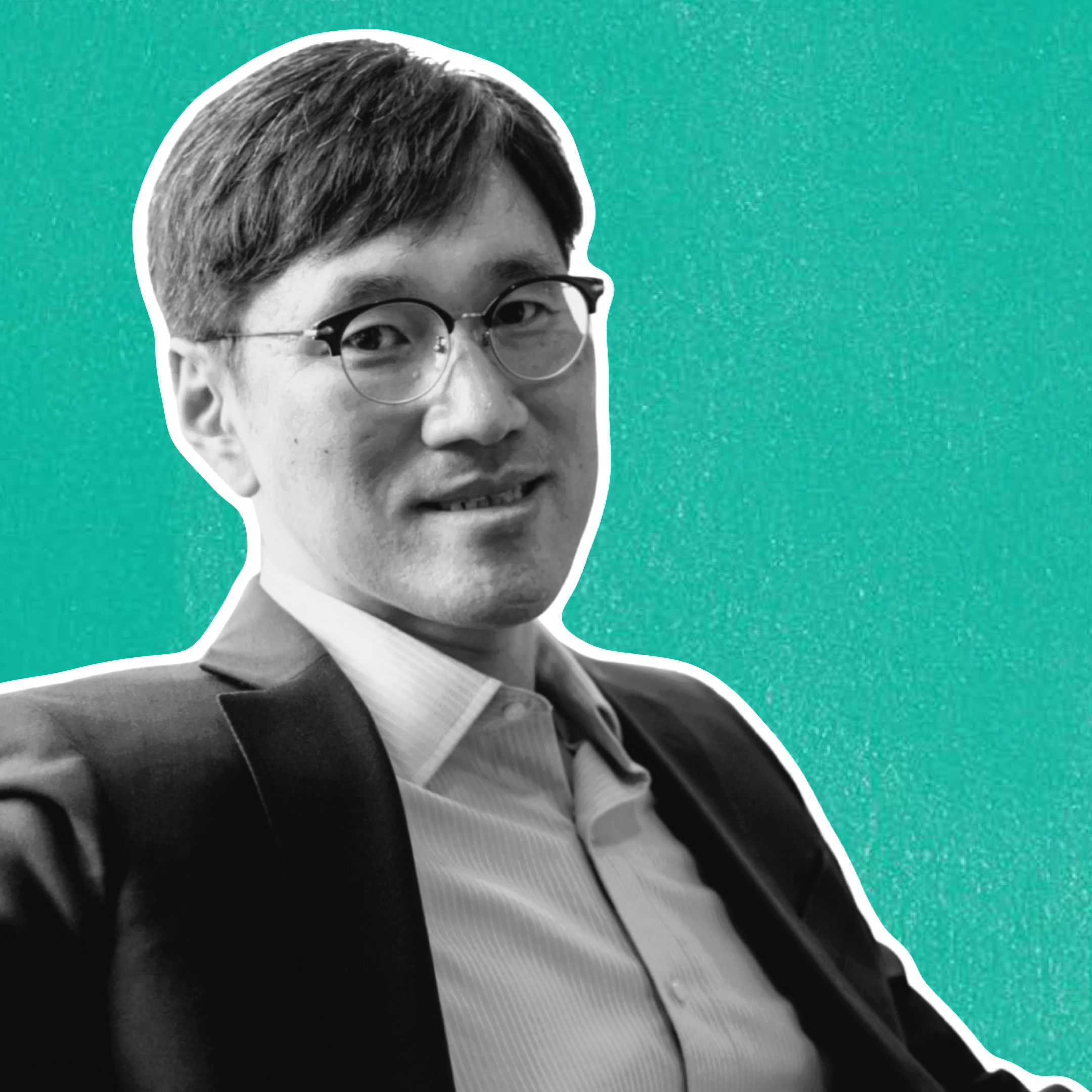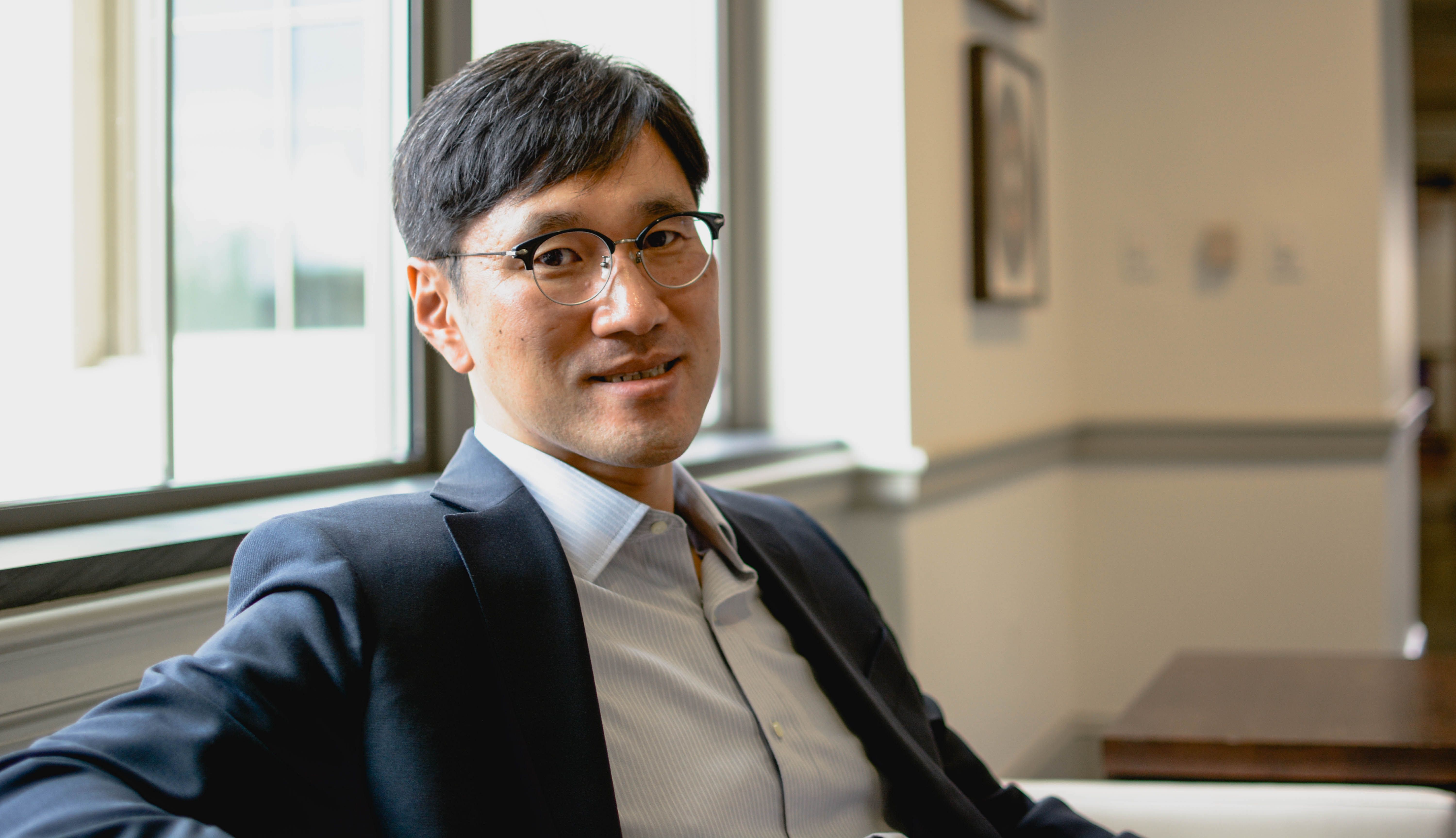
Darby Joyce
Content Marketing Coordinator
Technology impacts nearly every facet of our lives. From the widespread adoption of remote work during the COVID-19 pandemic to recent advances artificial intelligence and automation, understanding the digital world is vital for today’s workforce. Kogod professor of information technology and analytics Gwanhoo Lee is aware of this and teaches his courses to Kogod students with the future in mind.
“Regardless of the industry or job function that our students go into, digital technology will be integrated with their work,” Lee said.
Technology can be a source of competitive advantage and that they can learn to leverage it both to advance their careers and contribute to the success of their company and the greater community as a whole.”

Gwanhoo Lee
Professor of Information Technology, Kogod School of Business
Professor Lee’s knowledge of technology results from years of experience across various organizations. He has used his computer science and statistics expertise to consult for the World Bank and Samsung, and Lee has advised organizations from Marriott and Amtrak to the United States Department of Health. His talents have also been utilized within the South Korean government, where he suggested current technological advancements to help inform policy decisions.
“My primary role for all these organizations was to help formulate and implement their digital strategy,” he explained. “For instance, I recently advised the South Korean President’s committee on artificial intelligence to craft policies that foster transformation in key industries.”
Lee’s interest in technology’s ability to transform business—and the world—stemmed from his work with Samsung’s Semiconductor Division. Seeing how the constant adaptation and evolution of digital capabilities can impact other industries, Lee centered his research around how business sectors can best meet these changes and innovate them to their advantage.
“While earning my PhD, I worked with a dozen Fortune 500 CIOs to advance our understanding of the role of technology in business,” he recalled. “Combined with my experience with Samsung, I came out of the experience prepared to further research and teach fast-changing digital technologies.”
As technology becomes so interwoven into daily life, businesses must be prepared with rapid adaptation and creative solutions to problems that may not have existed even five years ago. Cybersecurity issues, artificial intelligence, data storage, privacy, and technical accessibility all factor into a digital business future. Additionally, the continued evolution of remote work and emerging questions about the Web3 space have come to the forefront, creating further questions regarding the future of work and how newer technologies will shape it.
Facing changing parameters, new technology, and a future full of questions and potential, Professor Lee focuses on equipping his students with the ability to adapt and keep learning throughout their careers. As a professor in information technology, he works to impart an understanding of today’s digital sphere and how to anticipate and respond to innovation.The field of digital technology changes and evolves rapidly. Therefore, it is important for our students to understand how to learn new things.”

Gwanhoo Lee
Professor of Information Technology, Kogod School of Business
Lee’s Business Intelligence course (ITEC-460 and ITEC-660) highlights ways that business leaders can identify data patterns and trends that provide insights into their environments to meaningfully prepare for changes. The course utilizes data analytics and case studies, helping students recognize these patterns early on and during diverse situations.
Beyond his course, Lee also recommends that Kogod students seek out the plethora of opportunities both on and off campus. His information technology and analytics department colleagues come from similarly experienced and informed backgrounds. They all serve as fantastic resources for students who hope to explore the digital side of business.
Kogod is also home to the Cybersecurity Governance Center, which is devoted to interdisciplinary research on cybersecurity and privacy issues while informing business leaders on how to approach both. Lee points to the broader DC area and its many resources as well. “There are tons of seminars, conferences, and internships available in the entire DMV area,” he explained. “Washington, DC offers many opportunities for students to learn about information technology.”
Even with his expertise in the field, Lee still pursues new questions and topics in technology himself. Among his current research, he’s particularly interested in connecting machine learning to social justice issues. His recent work studies the impact of AI programs that are designed to discover disparities so that those using the programs can determine how to resolve them. “I did a field study with the Korean government agency that developed an AI system for identifying social welfare blind spots—people who are eligible for social welfare benefits but are not aware of that eligibility,” he said. “I’m excited to investigate how AI can advance social justice.” As artificial intelligence continues to evolve and businesses find new uses, questions of ethics and responsibility have already appeared. Further development of machine learning needs to be done in tandem with understanding its impact. Lee’s research on how AI can be used to help those who need it marks a way that this quickly changing field can be studied with the broader world in mind and in terms of how to use these advancements for good.
“My experiences shape my research ideas. It also helps me better engage and interact with practitioners,” he said. “I incorporate those experiences in my lectures and discussions to help students better connect theory and practice.” With Lee’s help, Kogod students in the information technology space can graduate with the open mind needed to ask big questions and tie digital innovation into their work.
